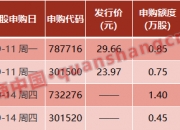近年来,随着比特币的风靡与区块链技术的热议,“虚拟货币”、“数字货币”、“加密货币”等词汇频繁亮相于各类媒体,令人眼花缭乱,一头雾水。由于国内对这些术语尚未有清晰、统一的界定,故本文依据业界共识,对其内涵予以简明阐述。
In recent years, the terms “virtual currency”, “digital currency” and “encrypted currency” have become more visible in various media, obscurant and obscurant. Since these terms have not yet been clearly and uniformly defined in the country, the content of these terms is described in a concise manner, based on the consensus of industry.
1. 定义:虚拟货币,顾名思义,乃未经实体印刷或铸造,仅存于虚拟空间的货币形态。欧洲银行管理局(EBA)于2014年给出权威解读,将其定义为非由中央银行或公共机构发行,不一定与法定货币挂钩,却能被公众接受作为支付手段,且能实现电子化转移、存储与交易的价值数字化表达。
1. In 2014, the European Banking Authority (EBA) gave an authoritative interpretation, defining it as not being issued by a central bank or public body, not necessarily linked to the legal currency, but accepted by the public as a means of payment, and as a digital expression of the value of electronic transfers, storage and transactions.
2. 典型代表:以腾讯Q币为例,此乃典型的中心化虚拟货币。由腾讯公司自主发行与管理,用户可通过多种途径充值购买,与人民币保持固定兑换比率,专用于购买QQ平台内的产品和服务。其特征为单向流通(不可兑换现金或转账),发行量及价格由腾讯自主调整,且局限于特定应用场景内使用,犹如网络世界的“专属玩具”。
Typical representative: This is a typical centralized virtual currency, for example, in the form of Queens. By means of its own issuance and management, the user can purchase it in a variety of ways, maintaining a fixed exchange rate with the renminbi, which is used exclusively to purchase products and services within the QQ Platform. It is characterized by a one-way flow (non-convertible cash or transfers) with distribution and prices adjusted autonomously by the Queens, and is restricted to specific applications such as the “exclusive toys” of the Internet world.
3. 范围与争议:虚拟货币涵盖范围最广,理论上包括去中心化的比特币。然而,鉴于比特币具有不受单一机构控制、可购买实物、与法币双向兑换等特点,业界倾向于将其归入加密(数字)货币类别。因此,部分证券界人士认为,虚拟货币特指Q币等类似中心化产物,不包含比特币等加密(数字)货币。
3. Scope and controversy: Virtual currency is the most extensive and theoretically includes decentralized bitcoin. However, given the characteristics of Bitcoin, which is not controlled by a single agency, can be purchased in kind, and is subject to two-way conversion with French currency, the industry tends to classify it as an encrypted (digital) currency category. Thus, some securities circles argue that virtual currency refers to similar centralized products, such as Q Currency, and does not include encrypted (digital) currencies, such as Bitcoin.
数字货币1. 定义:尽管对数字货币的界定存在争议,但各方普遍认同其为区别于纸币、硬币等实体货币,以数字形态承载货币职能,支持即时交易与全球范围内所有权转移的存在。
1. Definition: Although the definition of digital currency is controversial, there is general agreement that it is distinguished from real currencies such as banknotes, coins, etc., to carry monetary functions in digital form and to support the existence of instantaneous transactions and transfer of ownership on a global scale.
2. 分类争议:数字货币内部存在两大阵营:一是加密(数字)货币,如比特币、以太坊等;二是央行数字货币,即由国家权威机构发行,具有法定地位的新型货币。部分国内权威机构主张,唯有后者方能冠以“数字货币”之名。中国互联网金融协会区块链工作组组长李礼辉曾指出,数字货币须具备法定地位、国家主权背书、明确发行主体及国家信用支撑,比特币等虚拟货币因缺乏上述要素而不算数字货币。
Categorization disputes: There are two main camps within the digital currency: encryption (digital) currencies, such as Bitcoin, Etheria, etc.; and central bank digital currencies, i.e., new currencies issued by state authorities with a statutory status. Some domestic authorities argue that only the latter can qualify as “digital currencies.” Lee Rehui, the head of the IIFA sector chain working group, has pointed out that digital currencies must have legal status, a sovereign endorsement of the state, a clear issuer and the support of national credit, and that virtual currencies such as Bitcoin are not counted as digital currencies due to the absence of the above-mentioned elements.
3. 与电子货币之别:值得注意的是,数字货币与支付宝、微信转账等电子支付方式有本质区别。后者本质上是对现有法币的信息化处理,依托于电子账户体系,而非真正存在于数字世界的独立货币。真正的央行数字货币尚处研发阶段,未来将与现有点钞共存,并有望逐步替代现金。
3. Distinction from electronic currencies: It is worth noting that there is a fundamental difference between digital currencies and electronic payments, such as payment treasures and micro-credit transfers. The latter are essentially information-based treatment of existing French currencies, based on electronic accounts systems, rather than on independent currencies that really exist in the digital world. Real central banks’ digital currencies are still in the research and development phase, which will coexist with existing banknotes in the future and are expected to gradually replace cash.
加密货币1. 定义:加密货币,顾名思义,是在特定加密算法基础上创生的数字货币。其不由任何中心化机构发行,理论上不受政府干预,当前市面上流通的比特币、以太坊、EOS等均为加密货币。
1. Definition: An encrypted currency, by definition, is a digital currency created on the basis of a particular cryptographic algorithm. It is not issued by any centralised institution and is theoretically free from government intervention.
2. 加密技术原理:密码学旨在确保数据交换的安全性,通过构建与分析算法和协议,防止信息在传输过程中被第三方篡改或破坏。其主要倚仗数学原理,确保算法与协议的精确度与可靠性。
2. Principles of encryption: cryptography is designed to ensure the safety of data exchange and to prevent the manipulation or destruction of information by third parties during transmission by constructing and analysing algorithms and protocols. The primary reliance is on mathematical principles to ensure the accuracy and reliability of algorithms and protocols.
3. 中心化与去中心化对比:相较于受中心化机构监管、发行量由发行主体决定、交易信息不公开的非加密数字货币(如公司或国家发行的数字货币、虚拟货币),加密货币采用分布式账本系统,共识机制由社区多数成员制定,对用户隐私保护良好,交易信息公开透明,且交易规则无法被单个机构或个体擅自改动,全程接受社群监督。
3. Centralization versus decentralization: Compared to centralization, distribution is determined by the issuer, non-encrypted digital currencies (e.g., digital currency issued by the company or the State, virtual currency) where the transaction information is not publicly available, cryptographic currencies use a distributed system of accounts, consensus mechanisms are developed by the majority of the community, user privacy is well protected, trade information is open and transparent, and trading rules are not subject to unauthorized change by individual agencies or individuals, and community supervision is available throughout the process.
综上所述,区块链投资领域热议的各类“币种”,本质上应归属为加密(数字)货币。无论是公众关注的比特币,还是各国央行积极探索的数字货币,其核心实质皆为加密货币。
In summary, the various types of “currencys” that are strongly discussed in the area of block-chain investment are essentially classified as encrypted (digital) currencies. Both the public interest in bitcoins and the digital currencies actively explored by central banks are, at the core, encrypted currencies.
注册有任何问题请添加 微信:MVIP619 拉你进入群

打开微信扫一扫
添加客服
进入交流群



















发表评论